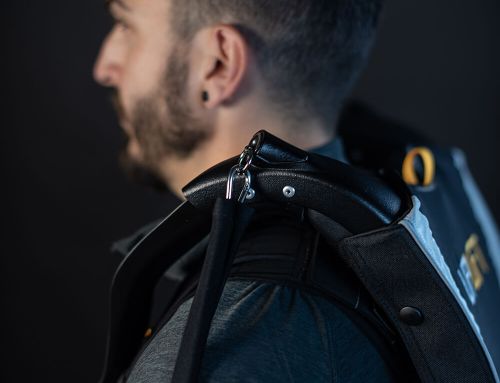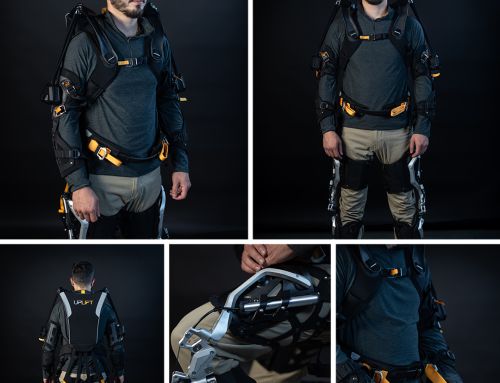
Exoskeleton technologies possess significant potential to positively transform the world. The promised benefits of this technology align with the ASTM F3323-21 standard definition, which defines exoskeletons as “wearable devices that augment, enable, assist, and/or enhance physical activity through mechanical interaction with the body.”
Currently, exoskeletons are being developed and applied across various domains such as medical, occupational, military, and recreational fields. The overarching objective is to enhance the quality of life and well-being of individuals.
As the potential of exoskeletons is compelling, questions naturally arise:
- How can one verify whether exoskeletons fulfill their potential in a beneficial manner?
- How can one ensure there are no adverse outcomes when adopting such an emerging technology?
- How can one distinguish between different exoskeleton types and models?
- How can one select a suitable exoskeleton for a specific situation?
The answers to these questions lie in Voluntary Consensus Standards, a crucial tool for ensuring the responsible development and application of exoskeletons. These standards are crafted through a transparent process that welcomes participation from representatives of various stakeholders, including users, producers, researchers, and government bodies. This collaborative approach fosters an open exchange of opinions, concerns, and perspectives.
Mawashi embarked on its exoskeleton development journey in 2014. After four years of internal expertise building, in 2018, Mawashi members, including human factors and engineering specialists, joined ASTM International Committee F48 on Exoskeletons and Exosuits. This committee, established just a year earlier, provided a platform for sharing learned lessons within the community and building consensus on defining exoskeletons and establishing good practices for exoskeleton safety, quality, and performance. Since then, ASTM F48 has published 15 standards covering terminology, guides, practices, and test methods for exoskeletons.
In 2023, Mawashi’s ergonomists expanded their contributions by collaborating with The French Standardization Association (AFNOR) Committee X35A on Ergonomics, Occupational Health, and Safety. Mawashi members also serve as liaison resources for both ASTM F48 and AFNOR X35A committees.
Standards play a crucial role in guiding the responsible evolution of exoskeletons. Mawashi is committed to this mission, encouraging its employees to participate in standard development committees, supporting testing, and incorporating developed standards into day-to-day processes to continually improve product quality. Collaborators and users of exoskeleton products are equally encouraged to participate in defining equitable standards, contributing to a brighter future.
Health. Potential. Progress. For all.
Additional Information:
As of today, exoskeleton standards are developed and published by several standardization organizations:
ASTM F48 international standards (American Society for Testing and Materials) cover exoskeletons used in industrial, emergency response, medical, military, and consumer applications, encompassing both passive and active systems.
ISO (International Organization for Standardization) and IEC (International Electrotechnical Commission) international standards focus on robotic exoskeletons and those used for rehabilitation and medical applications.
AFNOR (French Standardization Association) X35A national standards concentrate on occupational exoskeletons.
About the ASTM:
The American Society for Testing and Materials (ASTM) is a globally recognized leader in the development and delivery of voluntary consensus standards. Founded in 1898, ASTM serves as a platform for developing and publishing technical standards for a wide range of materials, products, systems, and services. These standards are integral to improving product quality, enhancing safety, facilitating market access and trade, and building consumer confidence. ASTM’s work covers diverse industries including metals, construction, petroleum, consumer products, and more. Their standards are developed by international members who are experts in their fields, ensuring a rigorous and inclusive process.


